**Note: This page is for educational inspiration. Due to its historical and traditional nature, there is no single official website or founding body to credit.
Wednesday 1st April 2026
Understanding April Fools’ Day in EYFS & KS1
Let's have some giggles and harmless fun with jokes for April Fools’ Day! 😂🗓️ April Fools’ Day is observed annually on April 1st. Its origins are uncertain, with various theories suggesting connections to calendar reforms (like the shift from the Julian to the Gregorian calendar, where those who clung to the old New Year's Day (around April 1st) were mocked as "April Fools"), ancient spring festivals, or simply as a day of playful mischief. It’s a very old tradition that people celebrate in many countries. On this day, people like to play jokes and silly tricks on each other, and then they often shout, "April Fool!" The main idea of the day is just to have some light-hearted fun and make people laugh.
For early years settings, nurseries, preschools, childminders, and Year 1 and Year 2 classrooms, this day provides a playful and light-hearted theme for exploring humour, emotions and feelings (especially joy and surprise), language and communication (through jokes and riddles), social interactions, and personal, social & emotional development (PSED). It's about introducing children to the concept of playful fun, understanding boundaries (that jokes should be kind and not hurtful), and the joy of shared laughter. This day offers fantastic planning ideas and inspiration for engaging activities that truly resonate with young minds, making learning about humour and social play both exciting and memorable!
Why Is Learning About April Fools’ Day Important for Young Children?
Integrating April Fools’ Day and lessons about humour and playful interaction into your practice with young children (aged 0-7) can be a fun way to develop social skills, further understanding of emotions, and foster a positive classroom environment.
Develops Sense of Humour: Helps children understand and appreciate different types of humour, including jokes and playful tricks.
Enhances Social Skills: Teaches about appropriate social interactions, respecting boundaries in play, and understanding when a joke is just a joke.
Emotional Literacy: Provides opportunities to discuss feelings like surprise, amusement, and ensures understanding that jokes should not cause upset.
Language & Communication: Encourages the use of descriptive language through telling jokes and creating silly scenarios.
Creativity & Imagination: Inspires imaginative play and thinking of harmless, fun pranks or riddles.
Community Building: Fosters shared laughter and a sense of lighthearted fun within the group.
Engaging Jokes & Play Activities for April Fools’ Day (0-7 Year Olds)
Let's sprinkle some laughter into our learning for April Fools’ Day with these planning ideas and activities perfect for EYFS and KS1 children. The focus is on fun, harmless jokes, and creative play! Many of these early years and year 1 activities can be supported by our dedicated resources for this day, as well as broader 'Emotions and Feelings' and 'Kindness and Friendship' themed materials.
Here's some inspiration for celebrating April Fools’ Day in your setting: (Please use your own discretion and knowledge of your children to ensure appropriateness of each activity and safety concerning any materials given and activity undertaken. Emphasise that jokes should always be kind and make people laugh, not sad or cross.)
Telling and Sharing Jokes:
Introduce some simple, child-friendly jokes. Use 'Joke Cards' to share pre-written jokes.
Encourage children to tell their favourite jokes or riddles.
Creating Our Own Jokes:
Have children think about what makes them laugh and try to create their own silly jokes.
Use 'Joke Illustration Activity Sheets' for children to draw pictures for jokes or create visual jokes.
Light-hearted Pranks (with clear boundaries):
Discuss what a "harmless trick" or "practical joke" means (e.g., putting a rubber spider in a safe place, telling a silly story).
Emphasise that the joke should never make anyone feel sad, scared, or cross. The aim is always to make people laugh.
Always end a "trick" by immediately saying "April Fool!" so children understand it's just pretend.
Silly Story Time:
Read books that involve silly characters or humorous situations.
Tell a short, silly story with a surprising or funny ending.
Exploring Emotions:
Discuss different feelings related to jokes: surprise, amusement, giggling, happiness.
Connect this to our 'Emotions and Feelings' theme.
Kindness in Humour:
Reinforce the importance of 'Kindness and Friendship' even when being silly. Discuss that jokes should never be at someone else's expense.
Talk about 'All About Me' and how we all have different senses of humour.
Creative Fun:
Use open-ended creative resources that encourage silly drawings or imaginative scenarios.
Explore More: You may also like to explore additional pages covering relevant and/or connected themes such as ‘All About Me’, ‘Emotions and Feelings’, ‘Families’, ‘Kindness and Friendship’, and ‘Mental Health’ (focusing on positive feelings and laughter).
These activities offer great inspiration for making April Fools’ Day a memorable and impactful experience in your early years and Key Stage One setting, fostering a sense of humour, positive social interactions, emotional understanding, and a joyful learning environment.
To explore ideas surrounding additional early years events, please visit our 'Special Dates Calendar' page.
Printable resources to support teaching & learning surrounding: ‘April Fools’ Day’
Additional Pages you may like to explore which cover relevant &/or Connected themes
More Early Years Event Pages for April
Explore special dates (including awareness dates, festivals, celebrations & events) relevant to your EYFS & KS1 children
Browse our ‘Special Dates Calendar’ page using the link below. You’ll find calendars for every month of the year to aid your planning!
SEARCH ‘LITTLE OWLS Resources’ USING THE FOLLOWING MENU BUTTONS…
Disclaimer:
This page is for educational purposes only and is intended to support early years and primary practitioners with ideas and resources related to 'April Fools’ Day'. This day is a historical tradition with uncertain origins and is not officially affiliated with or endorsed by any single founding organisation. We do not claim any rights to specific trademarks or official materials associated with this informal observance. The activities provided aim to encourage light-hearted fun and promote positive social-emotional development, always with an emphasis on kindness and ensuring that any jokes or tricks are harmless and understood as playful.









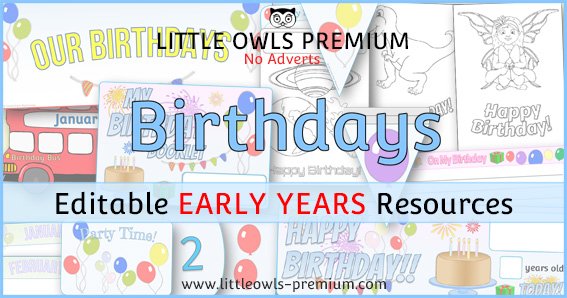
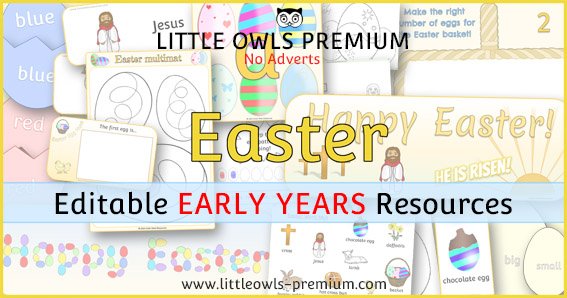

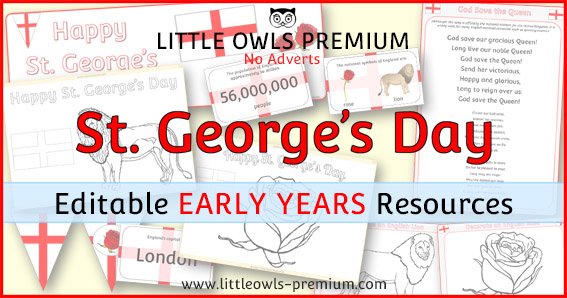










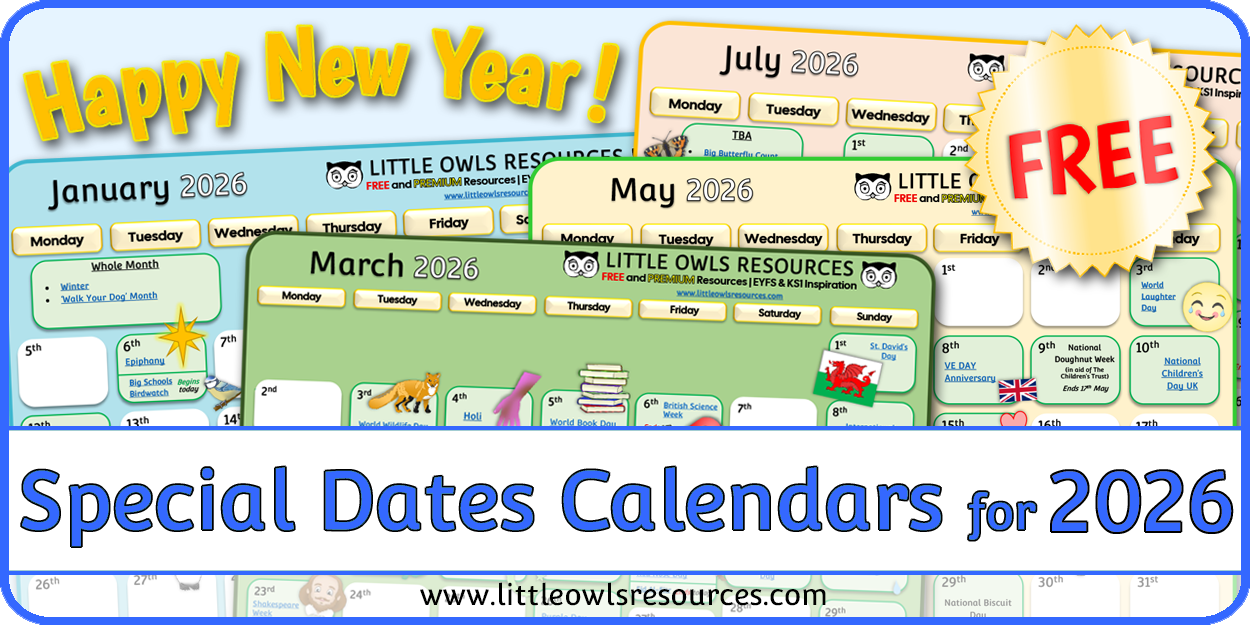
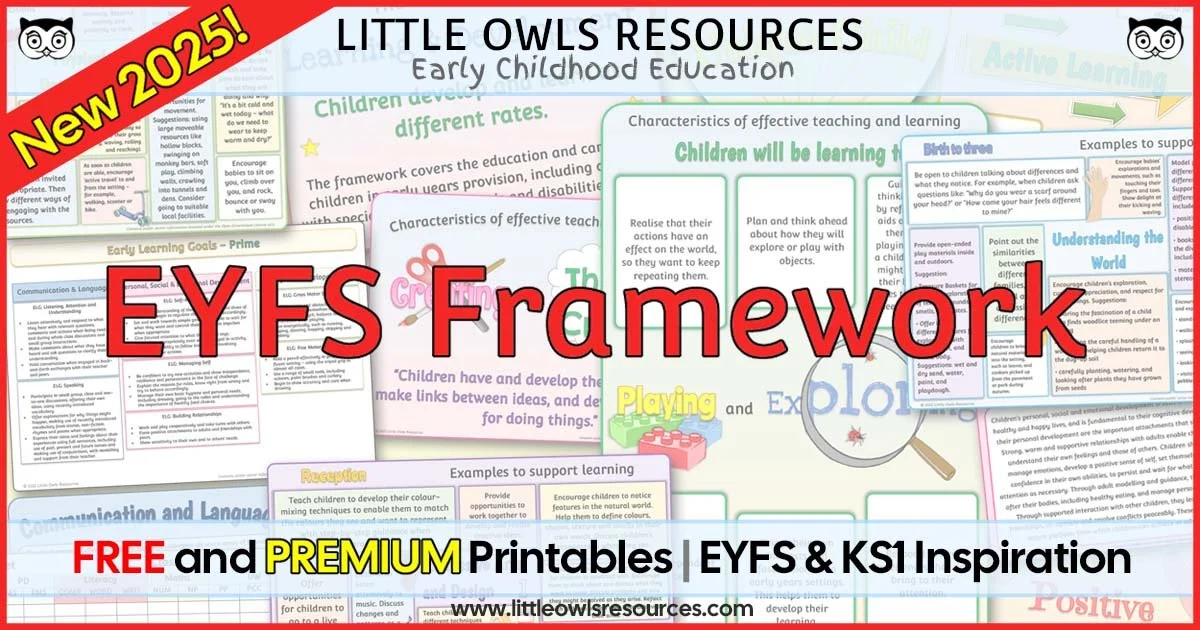

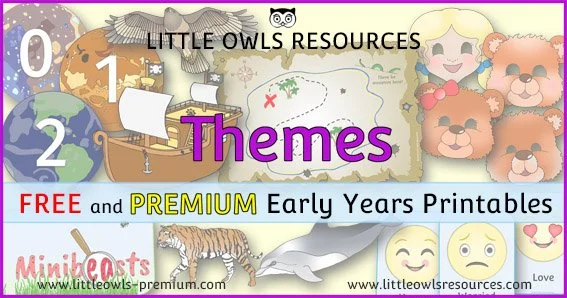

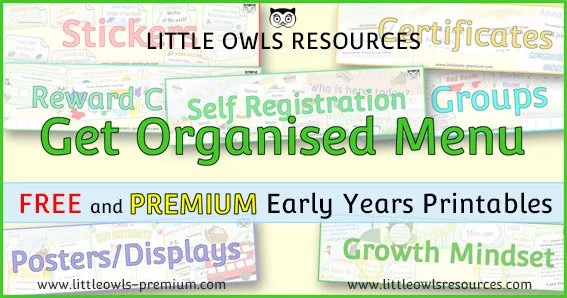

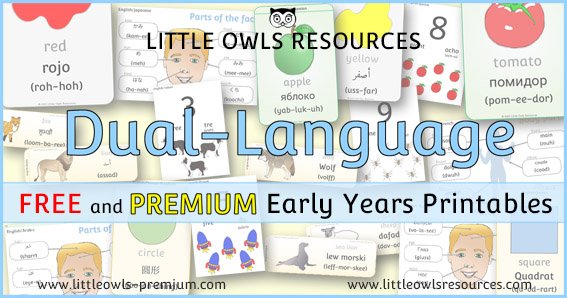
Let's put on our dancing shoes and move our bodies to the music! 💃🕺 International Dance Day is a special day celebrated every year on April 29th. It was started in 1982 by a group called the…